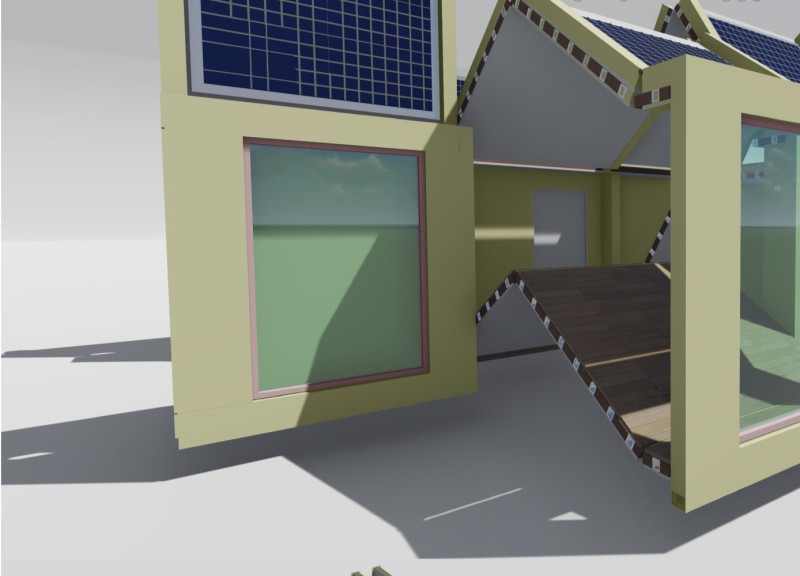5 key facts about this project
The Ali Box house is a foldable modular design measuring 123 square meters. It serves as a modern housing solution, focusing on efficient use and adaptability. The concept underscores modularity, enabling quick assembly and personalization to accommodate various living needs while being mindful of environmental concerns.
Modular Structure
The design consists of individual modules that fulfill specific roles, allowing for flexible arrangements to suit the occupants' needs. This modular approach makes it possible to customize spaces for living, working, or leisure activities. Each module's purpose can shift, reflecting the changing demands of daily life.
Sustainable Features
Sustainability is a core aspect of the Ali Box. Solar panels collect renewable energy, while rainwater tanks minimize dependence on external water sources. These elements are practical and contribute to a reduced environmental footprint, promoting responsible living in a modern context.
Interior Integration
Movable walls define spaces within the modules, creating areas such as corridors and rooms. These walls can shift positions using specialized mechanisms, allowing for different configurations. This feature enhances the living environment's flexibility, ensuring it adapts to various activities and needs.
Material Considerations
Materials are carefully chosen to enhance both aesthetics and functionality. Parquet and ceramics are used throughout the design, providing durable finishes that are visually appealing and suited for high-use areas. These selections demonstrate a focus on quality, ensuring the space remains attractive and practical over time.
The inclusion of a modular pool is a notable feature, setting the Ali Box apart from standard homes. This recreational element is integrated into the overall design, emphasizing a harmonious relationship between living spaces and areas for relaxation.





















































